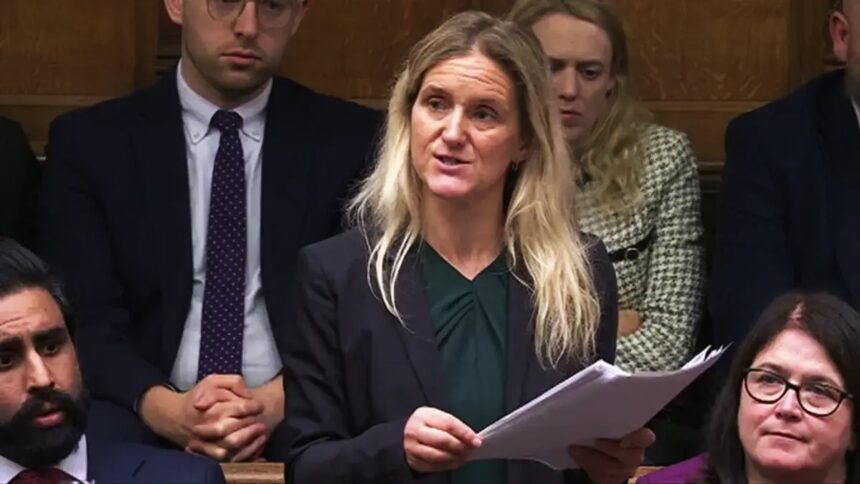In a landmark decision, Members of Parliament (MPs) have voted in favor of a bill that could pave the way for legalizing assisted dying in England and Wales. The vote, which took place in the House of Commons, marks a significant step forward in a debate that has divided the country for decades. The bill, championed by Labour MP Kim Leadbeater, aims to allow adults who are terminally ill and expected to live no longer than six months the option of seeking medical assistance to end their lives. After an emotional debate, MPs voted in favor of the bill by a majority of 55 votes, with 330 votes for and 275 against.
The Bill’s Key Provisions
The proposed legislation, named the Terminally Ill Adults (End of Life) Bill, is designed to offer terminally ill people greater autonomy and control over how they spend their final days. If the bill is passed, adults diagnosed with a terminal illness and expected to live for six months or less will be able to request medical assistance to end their lives.
Key safeguards have been proposed to ensure that the decision to seek assisted dying is made voluntarily and without any external pressure. Under the bill, two independent doctors and a High Court judge must approve the decision before any action is taken. The person requesting the procedure would also have to administer the medication themselves, ensuring that the act is carried out with full consent. To prevent abuse, anyone found coercing an individual into assisted dying could face up to 14 years in prison.
MPs Given Freedom to Vote with Their Conscience
In a rare move, the vote on this sensitive issue was a free vote, meaning MPs were not bound by party lines and were allowed to vote according to their personal views. This allowed for a deeply emotional debate, with MPs from across the political spectrum sharing their personal experiences and expressing strong opinions on both sides.
Several high-profile political figures, including Prime Minister Sir Keir Starmer and Chancellor Rachel Reeves, supported the bill, while others, including Health Secretary Wes Streeting and Justice Secretary Shabana Mahmood, voted against it. The bill’s supporters argued that it would offer terminally ill people the dignity and control over their death that they deserve, while opponents raised concerns about potential exploitation of vulnerable people.
Wow, powerful moment from @RachaelMaskell.
"My constituent was just 46 when she received a terminal diagnosis, she would qualify for an assisted death.
Now 54 and IN REMISSION she pleads that this bill doesn't pass!"#AssistedDying #AssistedDyingBill pic.twitter.com/9LkujbgsXS
— Richard (@RedWallPleb) November 29, 2024Emotional Debate in the Commons
The debate in the House of Commons was an intense and emotional one, with MPs recounting personal stories that shaped their views on the issue. Conservative former minister Andrew Mitchell, who changed his stance on assisted dying after hearing constituents’ heartbreaking stories, became emotional as he spoke about the pain and indignity suffered by those at the end of their lives.
On the other side, Labour MP Diane Abbott expressed her reservations, arguing that legalizing assisted dying could lead to vulnerable individuals, particularly those with disabilities, feeling like a burden on society. She worried that the legalizing of assisted dying could lead to a “slippery slope” of increasing numbers of people being pushed toward ending their lives prematurely.
Another emotional moment came when Labour MP Marie Tidball shared her personal experience of childhood surgery and the extreme pain she endured, which made her question the nature of her death. Despite her support for the bill, she called for careful consideration of amendments to ensure it is as robust as possible.
A Promise of Scrutiny and Amendments
Kim Leadbeater, who introduced the bill, emphasized that the legislation would undergo thorough scrutiny before it becomes law. She assured MPs that the bill was open to amendments and would be carefully reviewed to ensure it was the best possible legislation for terminally ill patients.
Leadbeater also acknowledged the ongoing concerns about end-of-life care, noting that improving palliative care should remain a priority alongside the proposed changes in the law. She stressed that assisted dying was not intended to replace palliative care, but to offer individuals another option if they were experiencing unbearable suffering.
The Role of Palliative Care and Support for Vulnerable People
While many MPs spoke passionately about the need for choice and dignity at the end of life, opponents of the bill focused on the potential risks, particularly for vulnerable groups. Some argued that resources should be directed toward improving palliative care, which many believe is still inadequate in parts of the UK.

Rachael Maskell, a Labour MP, pointed to the underfunding of palliative care services, which have not kept pace with growing demand. She warned that the focus on assisted dying could divert attention away from improving the quality of life for terminally ill individuals, especially those who do not choose to end their lives.
The issue of safeguarding vulnerable people was raised by several MPs, who warned that terminally ill patients, particularly the elderly and those with disabilities, could feel pressured to seek assisted dying. Some called for mandatory interviews with friends and family to ensure that the decision was made without coercion, but others, including Danny Kruger, argued that such measures would not be enough to protect people from subtle forms of pressure.
A Historic Step Forward
The vote marks a significant change in the assisted dying debate, which has been ongoing for years. Previous attempts to legalize assisted dying in the UK have failed, including a 2015 vote that saw the proposal rejected by a wide margin. However, this vote signals a shift in public opinion and parliamentary attitudes on the issue. The decision, according to the bill’s supporters, including the group Dignity in Dying, is a historic step toward giving dying individuals more choice and safety.
If the bill progresses through the next stages of parliamentary scrutiny, it could take several years before it becomes law. Even if it passes both Houses of Parliament, the government has indicated that there will be a period of up to two years to set up the necessary infrastructure to implement assisted dying in a safe and regulated way.
As the bill moves to the committee stage, MPs and peers will have further opportunities to discuss and amend the legislation. The debate over assisted dying in the UK is far from over, but the results of today’s vote represent a turning point in a deeply personal and contentious issue. Whether the law changes or not, this debate has brought forward crucial questions about autonomy, dignity, and the role of the state in the lives of its citizens, particularly in the final moments of life.
Read More: Jeremy Clarkson Joins Farmers in Protest Over UK Inheritance Tax Changes






